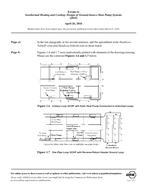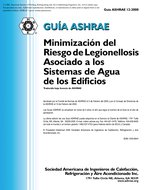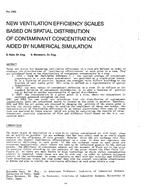Click here to purchase
Heat networks are a key technology proposed in the UK Government’s Clean Growth Strategy for delivering low carbon and low-cost energy to urbancommunities in the UK. Currently, around 2% of all heat in the UK is provided by heat networks compared to other countries such as Sweden/Denmark, where they have more than 30% delivered in this way. Most of the Scandinavian systems use high temperature 3rd or 4th generation heatnetworks (>50-80ºC) [>122-176ºF] and these are often driven by fossil fuel powered Combined Heat and Power (CHP), which are carbon intensiveand also impact on local pollution/ particulates. In the UK there is a drive towards 5th generation heat networks involving ambient temperatureloops (13 – 25ºC) [55-77ºF]. These systems deliver additional benefits and savings as they are able to share heat/coolth across the network and capturewaste heat from secondary heat sources like the heat from London Underground ventilation shafts and local data centres. They utilise heat pumps todeliver heat or cold from the loop to individual applications or buildings and they avoid emissions of particulates associated with CHP.This paper investigates how existing 3rd and 4th generation networks can be connected into 5th generation systems. It uses the 3rd generation BunhillCHP installation in the London borough of Islington as a case study to investigate the relative performance when converting a system. The paper describesthe techno-economic models developed to show how the Bunhill installation might perform when connected to 5th generation, including CAPEX andengineering connection approaches.
Citation: 2021 Virtual Conference Papers
Product Details
- Published:
- 2021
- Number of Pages:
- 9
- Units of Measure:
- Dual
- File Size:
- 1 file , 1.8 MB
- Product Code(s):
- D-VC-21-C066


